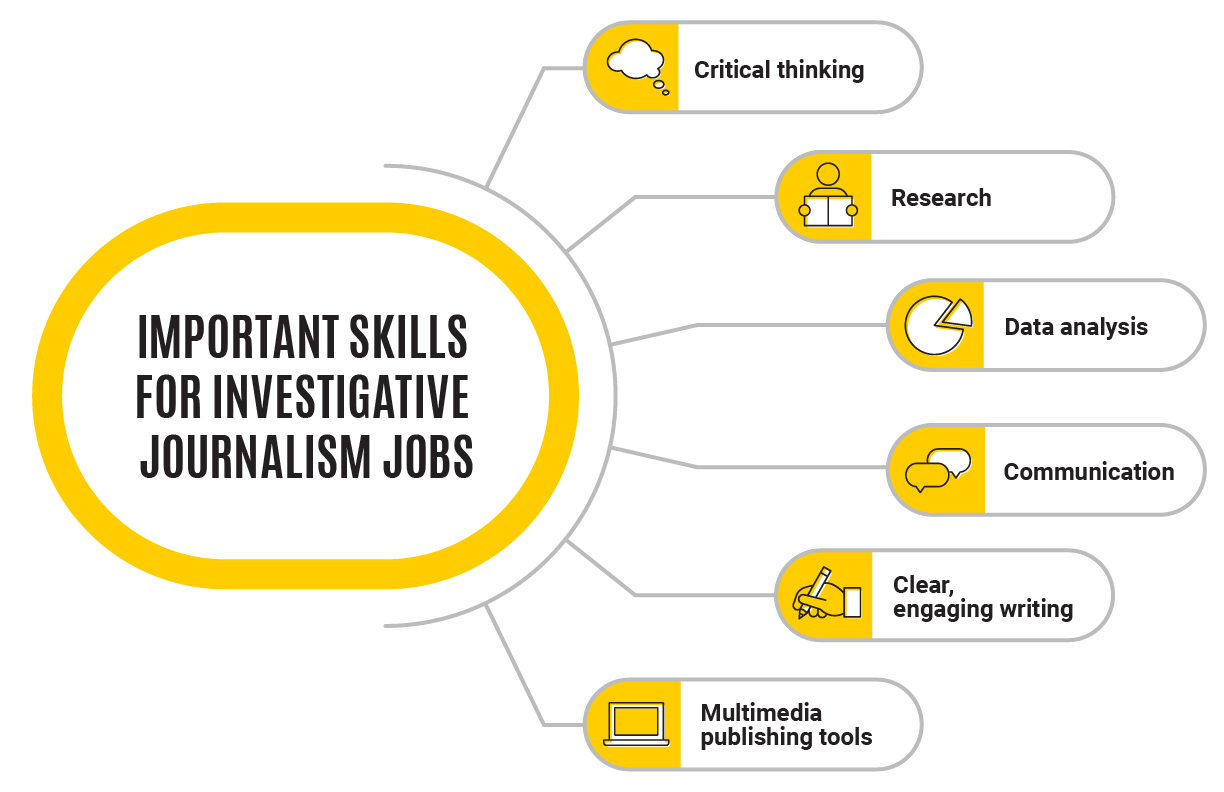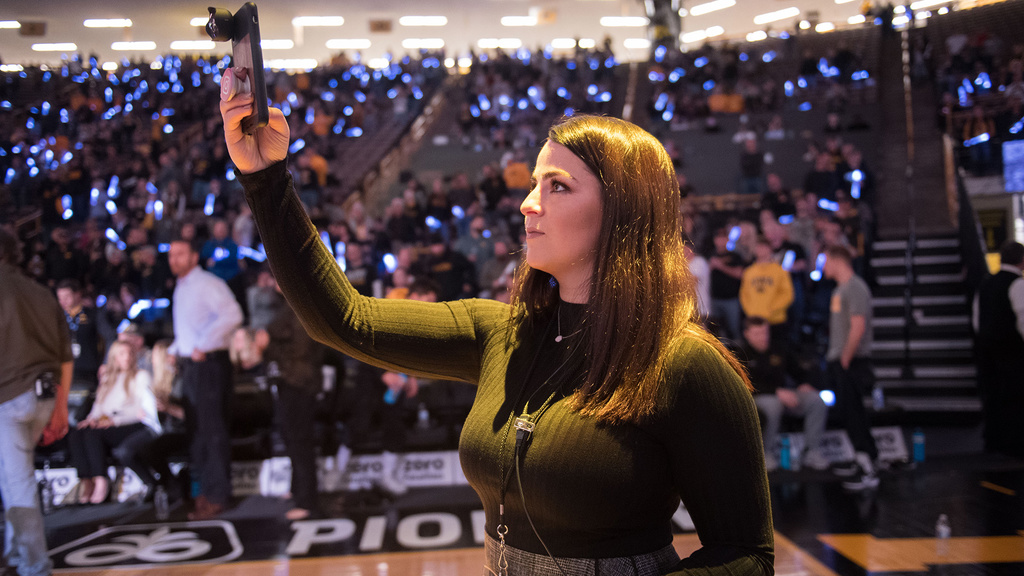Investigative journalists play a crucial role in our society.
These passionate professionals unearth information and expose secrets through original storytelling that can bring about change at a local, national, or even global scale.
Well-known examples include Upton Sinclair’s The Jungle highlighting the terrible conditions in Chicago meatpacking plants in the early 1900s, The Washington Post’s Bob Woodward and Carl Bernstein alerting the public to the Watergate scandal in the 1970s, and in the early 2000s, The Boston Globe’s Spotlight team exposing widespread child sex abuse perpetrated by Catholic priests.
Of the many types of journalism degrees, investigative journalism is likely what many people envision when they think of a journalism degree.
What does an investigative journalist do?
First, what is an investigate journalist? Investigative journalists shine light on issues that demand public accountability, such as abuses of power, corruption, or crime.
To do so, they must identify potential problems, conduct in-depth research, pursue leads, interview people in power and those who have been wronged, fact-check, and adhere to ethical reporting guidelines.

Investigative journalism isn’t limited to print newspapers. Investigative journalists also may create interactive digital elements for the internet, post to social media channels, do audio reporting through podcasts, or appear on camera.
Hawkeye perspectives
"The industry is changing — and it’s going to continue to change — but journalism at its core plays an important watchdog role. Investigative journalists watch what happens and make sure that people are held accountable when things go wrong. And we’ll always need that."
"I grew up swimming, fishing, and camping in Iowa. The natural world is very important to me. The first environmental topic I covered extensively was water quality. This expanded to related topics of climate change, energy, agriculture, and land use. These are meaty topics that intersect with areas such as business and politics. Environmental reporting is more important now than ever."
What degree do I need to be an investigative journalist?
Investigative journalism jobs usually require, at minimum, an undergraduate degree, ideally in journalism or communication. Getting a double major or minor in a field such as political science also can help depending upon the area you want to primarily cover.
Some journalists also may pursue a master’s degree that specializes in investigative journalism, which will delve more deeply into areas such as data journalism and media law and ethics.
Along with a degree, experience also is important for investigative journalists.
"Few journalists start their careers doing investigations. Most start covering another 'beat,' such as public safety, education, or general assignment," says Erin Jordan, associate professor of practice at the University of Iowa. "The experience you gain covering the school board, city council, police department, or university often gives you ideas for investigations and sources who will share tips or guide you to relevant information."
Do investigative journalists make a lot of money?
Because investigative journalism occurs across occupations and media platforms, there’s no simple way to define an investigative journalist’s salary. To give you some sort of indication of what an investigative journalist is paid, let’s look at the average salaries of certain professions — writers, reporters, editors, producers, photographers, broadcasters — performed by journalism grads.
The average annual salary is there, but we also want to show what an income looks like at various percentiles (10th, 25th, 50th, 75th, and 90th). The lower points give you an idea of where entry-level jobs might land or what you might be paid in certain geographic regions that aren’t major media markets. (It’s not impossible to make six figures right out of college, but it’s hardly common.)
| CATEGORY | AVERAGE | 10TH % | 25TH % | 50TH % | 75TH % | 90TH % |
|---|---|---|---|---|---|---|
| Producers and directors | $107,170 | $42,040 | $58,540 | $82,510 | $128,040 | $174,540 |
| News analysts, reporters, and journalists | $101,430 | $31,550 | $38,160 | $57,500 | $91,890 | $160,360 |
| Writers and authors | $87,590 | $40,900 | $52,660 | $73,690 | $100,990 | $148,240 |
| Broadcast announcers and radio DJs | $86,950 | $24,400 | $30,920 | $44,890 | $66,070 | $127,560 |
| Editors | $85,110 | $38,790 | $51,810 | $75,020 | $101,100 | $138,920 |
| Film and video editors | $83,470 | $38,990 | $48,920 | $66,600 | $101,910 | $154,480 |
| Photographers | $53,380 | $28,510 | $32,240 | $40,760 | $62,480 | $95,740 |
(Source: U.S. Bureau of Labor Statistics, May 2023)
Ways to increase your earning potential as an investigative journalist:
- Take that entry-level position, even if it’s not explicitly one labeled investigative. That first job might not pay the big bucks, but that first job can quickly lead to the second job, and with advancement comes a salary bump. And investigative jobs come with a certain level of responsibility, which means experience will be sought.
- Look for degree programs that have a track focusing on investigative journalism. If you can hone this specific skill set early on — and develop a body of work through clips from a college newspaper or a broadcast internship — you will have a leg up on other candidates seeking the same gigs as you.
- If you’ve got the time and financial means to go to graduate school, you’ll bring the qualifications of a master’s degree to the table. Hiring managers filling higher-paying jobs might not require their applicants to have an advanced degree, but it’s the sort of thing you might see in a list of desirable/preferable qualifications.
How hard is it to become an investigative journalist?
Although the work of a journalist is harder to define now than before the digital age, majoring in journalism is achievable for most students.
However, it takes time to gain the skills needed to become an investigative journalist. You’ll likely spend several years as a general reporter before you get an investigative journalism job.
To help speed up the process, work for your student newspaper or broadcaster and apply for internships to gain experience, assist more-experienced reporters, network, develop sources, and build your portfolio.
"Investigative journalism is not for everyone," says Emily Hoerner, an investigative journalist for the Chicago Tribune. "I love to dive in really deep and spend a lot of time with a story. I know other reporters in the newsroom who love the grind of the daily news. They go in, write their story, and it’s out the door and they’re done with it. My stories go on for weeks and months.
"I’m always excited when people are interested in investigative journalism. We want young people. We want people with new insights and ideas coming into the field and making journalism better. So, try it out, and I hope to see you in the field.”
Related content

Can you make a living off journalism?

What should I double major in along with journalism?

